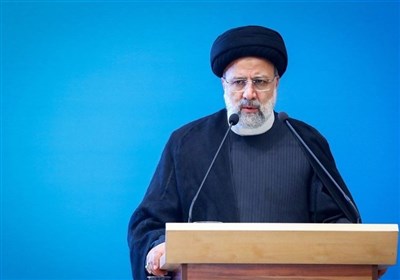EU States Adhere to US Agenda Even against Their Own Interests: American Analyst
TEHRAN (Tasnim) – An American political analyst said despite recent developments straining Washington’s relations with its EU allies, the Europeans tend to adhere to the US agenda even when harming their interests, adding that Trump’s time in office will end and the ties will be repaired.
“Indeed there’s disagreement between Trump and EU countries over Iran, the Nord Stream pipeline, and other issues - but it’s not enough to change the longstanding relationship,” Chicago-based Stephen Lendman told Tasnim in an interview.
“They (EU countries) largely adhere to the US agenda even when harming their own self-interest,” he said, adding, “Nine months after pledging to support and preserve the JCPOA, they’ve come up with nothing but weak proposals instead of breaking with Washington on this issue strongly and proving it with firm actions quickly.”
“Here’s the bottom line; Trump’s time in office will end. There will be a new US president in 2021 or 2025, and the relationship can be repaired - how I believe EU nations are thinking, so they’re riding things out until that time.”
Stephen Lendman is a writer, syndicated columnist, activist, News TV personality, and radio show host. He currently writes for MoneyNewsNow.com and VeteransToday.com and hosts, since 2007, a progressive radio show at The Progressive Radio News Hour on The Progressive Radio Network.
The following is the full text of the interview:
Tasnim: Tensions have grown in recent months between the US and its closest allies in the EU over various issues, including Iran, which was underlined at a recent US-backed conference on the Middle East in Poland that was largely sidestepped by many European governments. What do you think about US President Donald Trump’s foreign policy that has strained the transatlantic relations?
Lendman: Indeed there’s disagreement between Trump and EU countries over Iran, the Nord Stream pipeline, and other issues - but it’s not enough to change the longstanding relationship.
Post-WW II, the CIA created the EU so the US could colonize its member states. They largely adhere to the US agenda even when harming their own self-interest.
Nine months after pledging to support and preserve the JCPOA, they’ve come up with nothing but weak proposals instead of breaking with Washington on this issue strongly and proving it with firm actions quickly.
Instead, Britain, France and Germany equivocated and delayed, telling me they lack resolve to back their rhetoric with tough pro-Iran policies, breaking with Trump firmly on this issue.
It’s true that EU nations are displeased with Trump on various issues. NATO and how much of their GDP should go for military spending is another one.
Here’s the bottom line. Trump’s time in office will end. There will be a new US president in 2021 or 2025, and the relationship can be repaired - how I believe EU nations are thinking, so they’re riding things out until that time.
Tasnim: The Trump administration’s foreign policies are also slammed by top US officials. Recently, Speaker of the US House of Representatives Nancy Pelosi described the administration’s general approach toward Iran, including Washington’s withdrawal from the 2015 nuclear deal, as “completely wrong”. Do you believe other US officials would cooperate with the Trump administration in implementing its policies?
Lendman: I take what undemocratic Dems and Republicans say about each other with a grain of salt. On major issues mattering most, they’re in lockstep - mainly US wars, its overall imperial agenda, and corporate empowerment.
Public rhetoric and disagreements over issues like the border wall are for political advantage. With Israel so militantly hostile toward Iran and virtually the entire Congress pro-Israel, rare exceptions proving the rule, Dems like Pelosi and others support Tel Aviv, not Tehran.
Tasnim: The White House made a massive blunder after claiming European leaders applauded when Vice President Mike Pence dropped Trump’s name in a speech. Pence was speaking at the Munich Security Conference in Germany when he passed on Trump’s regards to the dignitaries gathered. The 59-year-old paused for several moments, waiting for a response, but the crowd remained silent. Do not you think that it is another sign of the strained transatlantic relations? How do you predict the European countries’ future reactions to the conflicting policies adopted by the Trump administration?
Lendman: I wrote about Pence’s remarks in Munich, a deplorable display. I think the audience’s reactions by silence at times showed frustration about part of Trump’s agenda, including the demand that the EU and all other countries abide by illegal US sanctions on Iran.
Look at what’s going on in Venezuela. Most EU countries support Trump’s coup attempt against a sovereign country and its democratically elected and reelected president.
Again, I think EU countries will largely support the US agenda, but not across the board. Germany especially supports the Nord Stream pipeline, opposing Trump’s call to reject it.
What’s going on is very disturbing. The US might escalate wars this year and next, Venezuela is mainly in the crosshairs and Iran is threatened by Trump regime’s belligerence.






